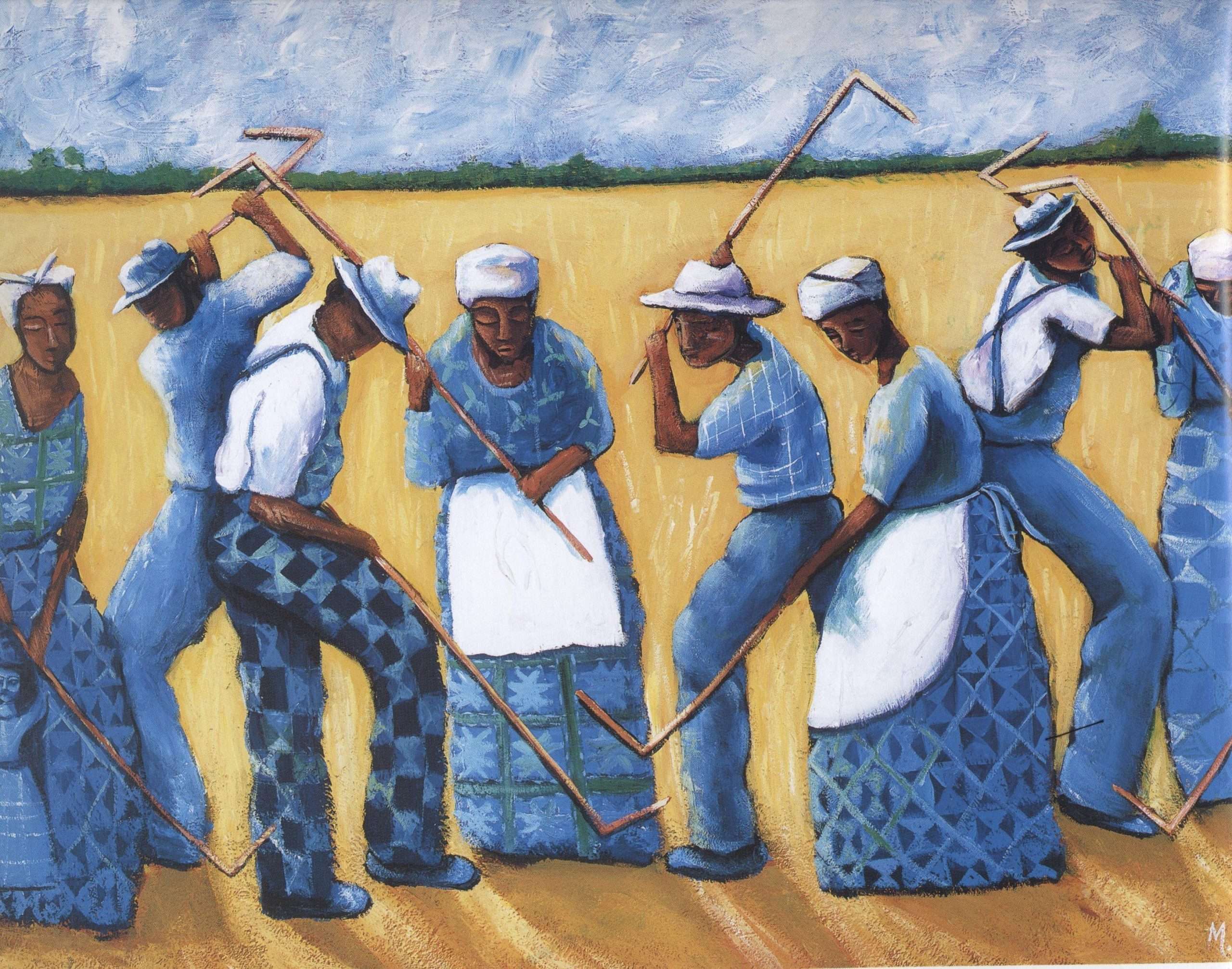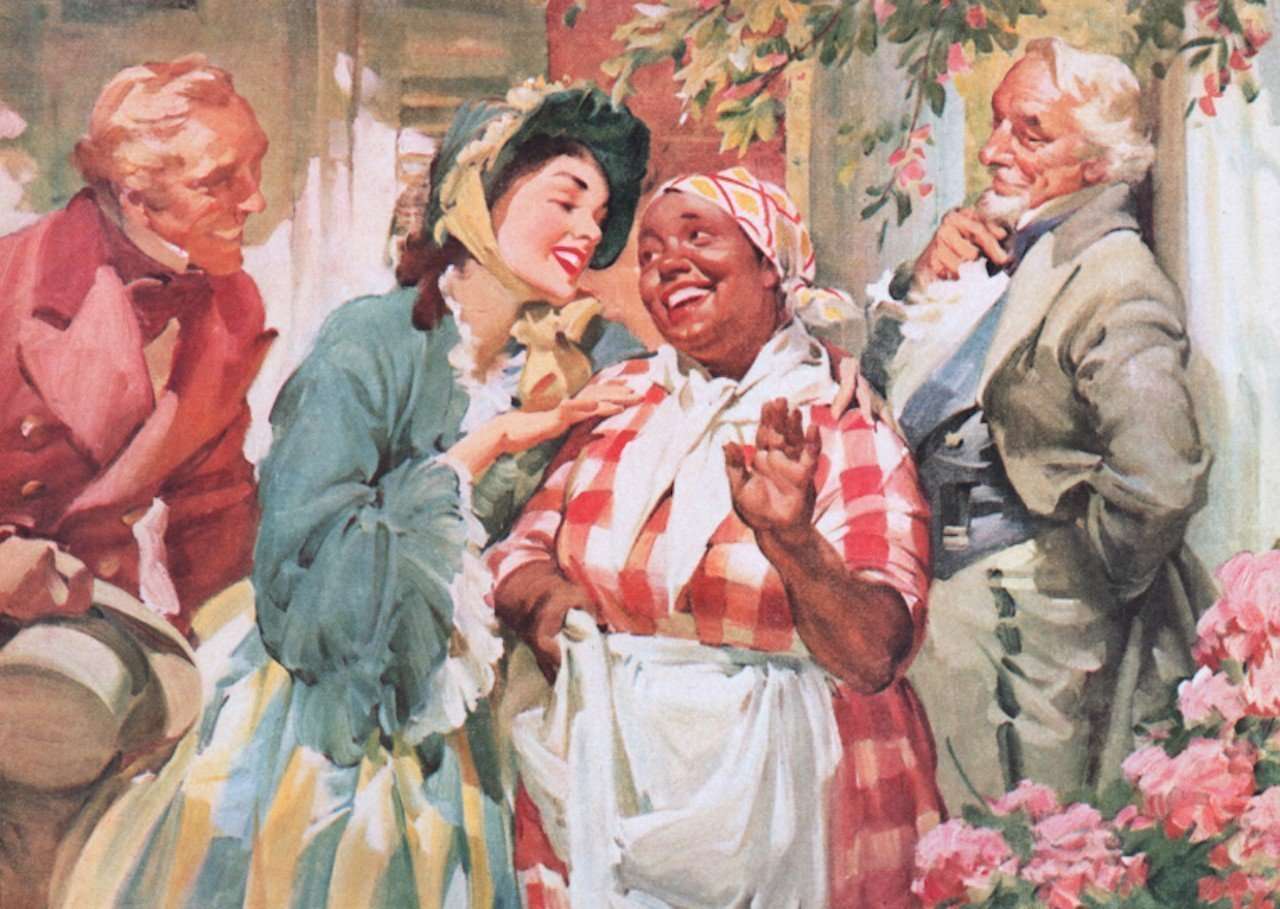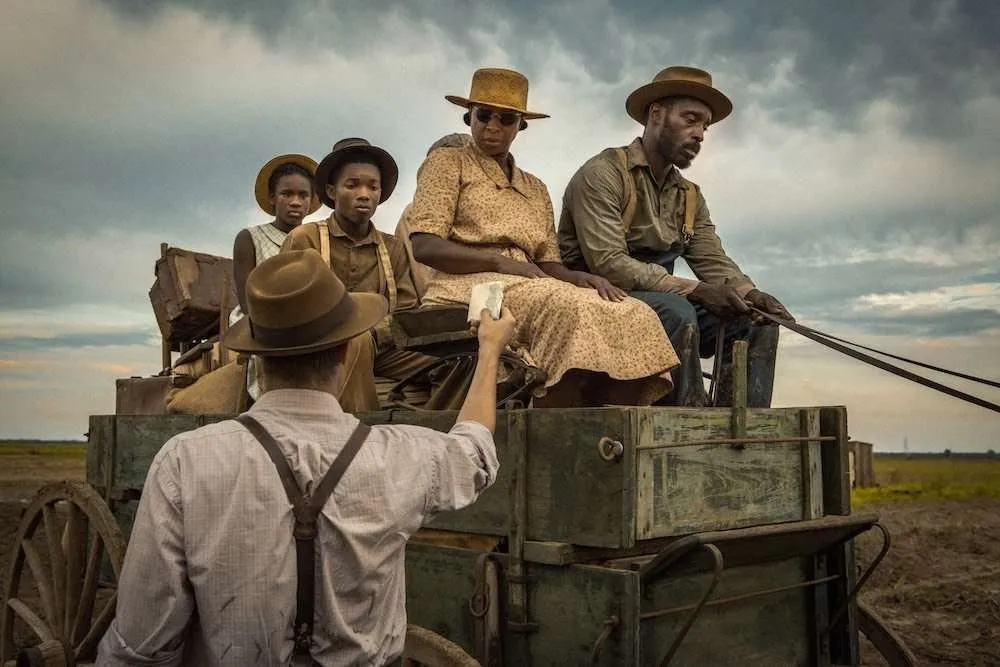Featured
25 Black Gospel Songs That Have Their Roots in Slavery

We all have our favorite black gospel songs, but did you know that plenty of these amazing songs have their roots in slavery?
Many masterpieces originated on the southern plantations and were sung by slaves while they attended church and worked. Their purpose was to uplift the spirit, express solidarity, tell stories, and yearn for freedom. Some tunes (also known as signal songs and map songs) included detailed and coded instructions that helped slaves travel to the north and escape enslavement.
Among the countless traditional black gospel songs, here are just 25 that have their origins in slavery.
Swing Low, Sweet Chariot
Swing Low, Sweet Chariot is a renowned call and response black gospel song in which the preacher sings the first line and the congregation responds. When a slave heard this tune, he would know that he had to be prepared for the big escape. The song talks about an angel band that takes the slave to freedom. The Sweet Chariot is a code name for The Underground Railroad which comes south (swing low) to take the slave to the free north (carry me home).
Wade in the Water
Wade in the Water is a Negro spiritual song that teaches slaves to hide and make it through by getting into the water. It’s a perfect map song example with lyrics that offer precious coded directions.
Steal Away
This song’s message is that the one singing it is planning to break free from enslavement. The lyrics say the Lord calls the slave to freedom and that there’s not much time left to stay on the plantation.
Amazing Grace
This famous melody was written by a captain of a slave ship. Amazing Grace is often attributed to another old slave tune and was originally played on the piano black keys in order to give it a sorrowful vibe. Now, this black gospel song is a staple at churches and funerals.
Follow the Drinkin’ Gourd
The drinking gourd mentioned in this African American gospel folk song is actually a water dipper which is the Big Dipper’s code name. The Big Dipper points towards the north, to the Pole Star. As moss only grows on the dead trees’ north side, the Big Dipper will guide the slaves north. Follow the Drinkin’ Gourd also suggests escaping during spring since days get longer and the quails start calling each other in April.
RELATED: 9 Classic Christmas Songs Black Artists Sang Better
Go Down Moses
Go Down Moses talks about the Bible’s Old Testament events, particularly Exodus 8:1. In the lyrics, Israel means African American slaves while Pharoh and Egypt mean the slave master. The word down, in the American slavery context, means down the Mississippi river, the place where slaves had to struggle with awful conditions. It is easy to see the roots of this black gospel song.
Nobody Knows the Trouble I’ve Seen
This masterpiece originated during the slavery period but was published in 1867, in a book entitled Slave Songs of the United States. Many artists such as Louis Armstrong, Marian Anderson, and Sam Cooke have done cover versions of the song. This is one of the most popular black gospel songs.
Thorny Desert
A version of this gospel hymn was sung by Harriet Tubman, an abolitionist and political activist, to signal her presence to the slaves who were looking for her help to escape.
Let Us Break Bread Together
The roots of this song were probably formed in the slave culture that developed in South-Eastern colonial America’s coastal areas such as South Carolina, St. Helena Island, Charleston, and Beaufort. Let Us Break Bread Together is a call for Christians to come together, whether knelt or stood and celebrate the Lord’s Supper.
Song of the Free
Written in 1860, Song of the Free was composed to the Oh! Susanna tune. It talks about a slave man who fled slavery in Tennessee. The protagonist managed to escape to Canada by using the Underground Railroad.
Down in the River to Pray
While its exact origin remains unknown, research suggests that Down in the River to Pray was written by a slave. The phrase in the river (sometimes replaced by to the river) represents a coded slavery escaping message. When slaves fled, they’d walk in the river to cover their scent from the bounty-hunters’ dogs.
In addition, starry crown can mean navigating the slaves’ escape by the stars and Good Lord, show me the way might be a prayer for finding the Underground Railroad.
Michael Row the Boat Ashore
Former slaves whose masters had left the island prior to the Union navy arrival that enforced a blockage sang Michael Row the Boat Ashore. Charles Pickard Ware, a Harvard graduate and abolitionist, was supervising St. Helena Island’s plantations between 1862 and 1865.
During that time, he noted this song down right as he heard it sang by the freedmen. In 1863, his cousin, William Francis Allen, reported that the former slaves were singing this song while they rowed him in a boat over Station Creek. That’s why this is one of the most historical black gospel songs.
Sometimes I Feel Like a Motherless Child
This traditional Negro spiritual dates back to the slavery era. Sometimes I Feel Like a Motherless Child expresses despair and pain. Furthermore, it conveys the lack of hope of a child who’s been torn from the parents.
The word sometimes is repeated several times, which can be interpreted as a measure of hope, as it suggests that occasionally this child doesn’t feel motherless. This child can represent a slave who, in the trafficking process, has been separated from something dear to his or her heart (such as a spouse, home country, parents, children, siblings, and so on) and is yearning for it.
Didn’t My Lord Deliver Daniel
Didn’t My Lord Deliver Daniel is a song that expresses an enslaved man’s conflicting thoughts. Unlike most gospel songs, these lyrics manifest disappointment, irony, and humor in reaction to the absurd nature of life as it was experienced by slaves. On the other hand, it may be just someone looking at the suffering going on around them and wondering why doesn’t God save everyone on Earth since he made the effort to save Daniel.
RELATED: The Story of the First African American to Appear on a U.S. Coin
The Gospel Train
While the language used in The Gospel Train apparently describes regular activities, its second meaning can easily be related to the Underground Railroad.
Mary Don’t You Weep
Originating from earlier than the American Civil War, Mary Don’t You Weep is one of the essential Negro spirituals, as it contains coded opposition and hope messages. It is exactly what scholars call a label describing their roots among the enslaved as well as an authentic slave song.
He Never Said a Mumblin‘ Word
He Never Said a Mumblin‘ Word is a spiritual folk gospel song also known as Easter, They Hung Him on a Cross, Crucifixion, and Mumblin’ Word. It narrates Jesus Christ’s crucifixion, giving a detailed description of the event. The origins of this work are unknown; however, many think that it dates back to the slavery period.
Roll, Jordan, Roll
Roll, Jordan, Roll is, undoubtedly, a staple in gospel music. The song was written by Charles Wesley and became famous among the slaves during the 19th century, being created as an escape coded message.
We Are Climbing Jacob’s Ladder
One of the first slave spirituals that became popular among white Christians, We Are Climbing Jacob’s Ladder is a masterpiece that, according to academics, was written somewhere between 1750 and 1825. The song is based on Jacob’s Ladder Biblical story and its lyrics hold out hope that the enslaved can escape and enjoy freedom. Numerous artists have recorded remarkable versions of it and it was even used as one of the principal themes in the great documentary entitled The Civil War.
Free at Last
This simple Negro spiritual has a straightforward point, as shown in the following lyrics: Free at last, free at last/I thank God I’m free at last. Moreover, its significance was proven by Rev. Martin Luther King, Jr.’s quotation in his world-famous I Have a Dream speech from 1963. It has one of the most memorable lines from all the black gospel songs.
I Got a Robe
Envisioning the freedom in Heaven, I Got a Robe is another key gospel song that many say is rooted in the slavery era.
He’s Just the Same Today
He’s Just the Same Today mainly talks about God’s constancy. Nevertheless, the choice of examples (Daniel’s refusal to bow down to men as well as the Hebrews’ escape from bondage) gives a subtext of pro-freedom.
Jesus On The Waterside
Many believe that Jesus On The Waterside is a slave song. Its lyrics can either mean becoming free by dying and going to heaven or simply by escaping slavery via the Underground Railroad. In both situations, Jesus will be sittin‘ on de water-side, helping the enslaved succeed.
There is a Balm in Gilead
This is a traditional Negro spiritual sang by members of the contraband camp as Charlotte Jenkins was arriving for the very first time to the Mansion House Hospital. By singing at contrabands camps, former slaves managed to navigate the area between enslavement and freedom.
I’m on My Way to Canaan Land
Just like other Negro spirituals, I’m on My Way to Canaan Land has a dual meaning for slaves. The word Canaan doesn’t only mean Heaven, but also north, and particularly the British colonies that later became Canada. That was the place where fugitive slaves were going in order to be free.
These are just some of the truly inspiring black gospel songs written and sung by slaves in America facing unimaginable pain.








